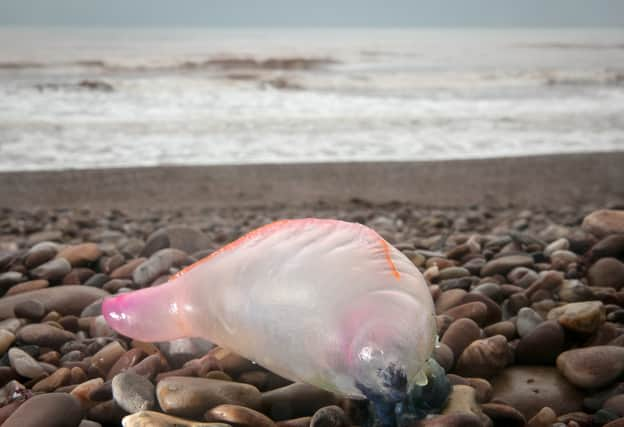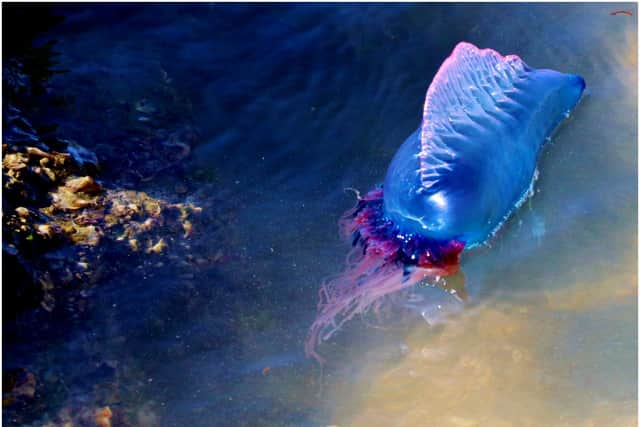Portuguese Man O’War: Deadly creatures reach North West beaches


Winter weather has driven ‘Floating Terror’ the Portuguese Man O’War to the beaches of the UK and experts have warned beach-goers to stay away from the deadly creatures that have begun to wash up along the coastline.
Cheshire Wildlife Trust have urged people to keep their eyes peeled when visiting the Wirral coastline and beyond as five of the creatures have washed up as far north as Walney Island in Cumbria.
Advertisement
Hide AdAdvertisement
Hide AdThat means the Portuguese Man O’War, which were first spotted in Cornwall after the recent spell of stormy weather, have passed Wirral, Crosby and Formby beaches as they slowly drift up the Irish Sea.
Senior Marine Conservation Officer for North West Living Seas, Dr Emily Baxter said: “If they have washed up in Cumbria it is highly likely that they will also appear on other beaches across the North West.”
Man O’War warning
“As the number and distribution of sightings has increased since early September we could see more washing up in the North West, so keep an eye out next time you are out on the shore,” Baxter told Cheshire Wildlife Trust,
“Although they are beautiful and fascinating, it is important to ensure children and dogs are kept away from any stranded Portuguese Man O’War as they can still sting even when dead.”
Advertisement
Hide AdAdvertisement
Hide Ad

About Portuguese Man O’War
The creatures live on the surface of the ocean and are found mainly in tropical and subtropical waters.
The beautiful stinging creatures can’t swim and are at the mercy of the winds, which is why they often end up washed ashore after big storms.
While they look pretty, and are usually around 30 ft long, the Portuguese man o’war tentacles can sometimes grow up to 160ft!
Their long tentacles help them take down their prey which is usually bigger than them.
Advertisement
Hide AdAdvertisement
Hide Ad

In some cases, sightings of this jellyfish can cause beaches to close to avoid any incidents caused by these fearsome creatures.
They mainly survive on crustaceans and small fish which might suggest they are harmless. However, if stung by one a human can experience severe pain and sometimes, in rare cases, end in fatality.
This Jellyfish’s venom can strike lymph nodes causing shock, fevers and can hinder a person’s breathing.
Jellyfish that wash up on beaches are usually dead, however, caution is still seriously advised as their tentacles still have the ability to sting.
Comment Guidelines
National World encourages reader discussion on our stories. User feedback, insights and back-and-forth exchanges add a rich layer of context to reporting. Please review our Community Guidelines before commenting.
